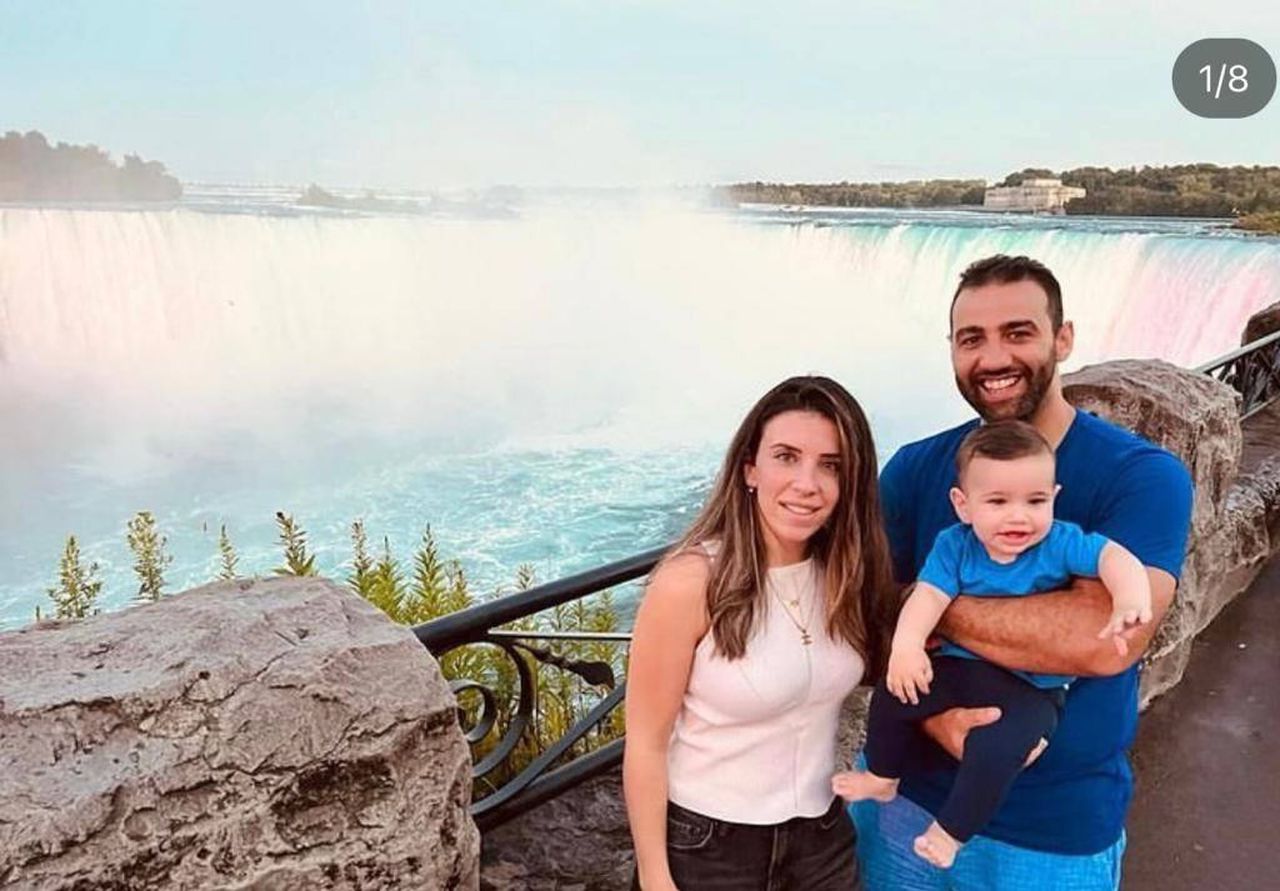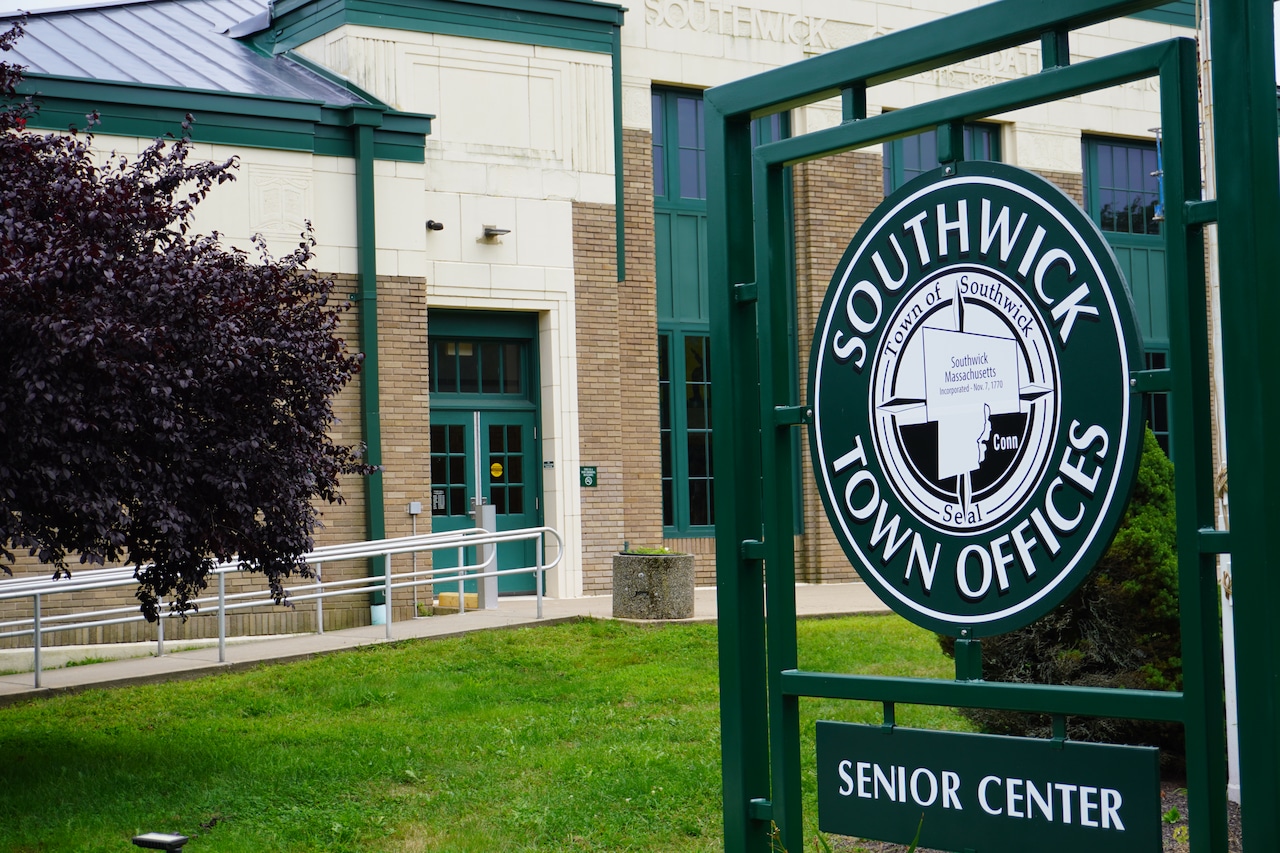
With hundreds of American citizens as well as other foreign nationals trapped in Gaza — including a Medway family — the U.S. State Department still does not have a way to get them out, according to the latest information from that department.
Abood Okal, Wafaa Abuzayda, and their son Yousef Okal of Medway, were visiting family in Gaza this month, and have not been able to leave since fighting began in the Israel-Hamas war.
The family has holed up in a single house in Rafah with 40 people staying inside, Okal said Monday over the texting app WhatsApp, adding that they had been there 10 days.
U.S. State Department spokesman Matthew Miller said at a press conference on Monday that negotiations have been ongoing about both getting aid into Gaza from Egypt through the Rafah crossing between the two countries, as well as getting U.S. citizens and other foreign nationals out.
“We were in conversation with the Government of Egypt, as we have been for some time, about being able to process those American citizens if they were able to get through the Gaza side and to the Egyptian side of the crossing. None of them were able to because the reports we were given on the ground is that Hamas was there blocking anyone from coming through the gate from the Gaza side out to the Egyptian side,” Miller said.
The U.S. State Department is not in direct conversation with Hamas, but has been sending messages to that group through partners, Miller said.
Okal, Abuzayda and many other U.S. citizens and foreign nationals came to the crossing to attempt to get out, but were prevented from doing so, Okal previously told MassLive.
Okal said he had not been permitted to cross three times, despite information from the State Department that the Rafah Crossing would open up.
Asked Monday if it was his expectation that Americans would be allowed to leave Gaza soon, Miller replied that while there wasn’t necessarily an expectation, there was a “very sincere hope that they would be able to leave in the coming days.”
Miller also said that the department is working through allowing fuel to be a part of humanitarian aid to Gaza through Rafah.
“Fuel is important for the desalination of water; it’s important to the provision of medical care. As you said, the Israelis do have legitimate concerns about the diversion of any fuel to Hamas,” Miller said.
Regarding the million people in Gaza who have been displaced from their homes following an Israeli order to evacuate the northern portion of Gaza, Miller said the U.S. is working with Israel to develop safe areas inside Gaza where civilians can be protected.
On Sunday, however, increased airstrikes hit the community of Rafah. The New York Times has reported that four homes in Rafah were struck Monday morning, killing 29 people.
For Okal and his family, the bombings have had a devastating effect.
“At night bombing causes Yousef to wake up frequently. He woke up last night and wouldn’t go back to sleep and kept crying until he passed out of exhaustion,” Okal said Monday. “He has lost his appetite and is constantly attached to at least one of us to the point where he would freak out if none of us was by his side.”
Miller said Monday that the context was important.
“Israel was the victim of a horrific terrorist attack. They have the right, they have the obligation to defend themselves, to defend themselves militarily, as any country would against a terrorist organization that launched that attack. But in that context, we are working with Israel to ensure that civilians are protected to the greatest extent possible and humanitarian aid can flow there,” he said.
Miller said he did not have an exact number of U.S. citizens who have contacted the State Department.
But a further inquiry Tuesday led to a State Department spokesperson saying thousands of emails have been exchanged with those citizens.
“We have a list of Americans who have registered with us, and when we have any information about the possibility of transiting outside of Gaza, we’re providing it to all of them,” Miller said.
Miller said that Egyptian officials are ready to process American citizens if they can make it to Egyptian authorities. He said that Hamas was the faction that was blocking the way.
No border crossings between Gaza and Israel have been opened to allow American citizens to escape.
Previously, the State Department had issued statements that American citizens would need to get themselves from Rafah to Cairo on their own.
Miller did not address that on Monday. The State Department did not respond Tuesday whether that requirement would still be in place if the border opens this week.
The situation in Gaza has been deteriorating for the Medway family.
Supplies have been dwindling for the family, as is the case across Gaza, where an Israeli blockade has stopped most supplies from getting through. There is also no electricity, leaving the family dependent on their cell phones for internet.
“We are basically relying on canned food when we can find it,” Okal said. “Drinking water is extremely scarce, and we try our best to secure it for a day or two of consumption. We have had to turn to unfiltered running water a few times, and even that is scarce. Showers are a luxury we can no longer afford.”
On Monday, the family opened the last box of milk for Yousef. Okal had tried last week to get more milk, but encountered Israeli airstrikes on the way, and had to go home empty-handed.
“We’ve been actively trying to wean him off milk the last few days to prepare for this moment, but we haven’t been as successful or stringent given everything going on and the fact that milk soothes him. Now we have no choice,” Okal said.
Okal said he still has not received any word from the State Department about when his family will be able to leave Gaza, a situation “beyond our comprehension.”
“We would have never ever thought that we would be stranded for 16 days,” he said.
Despite Miller’s report, Okal said Monday that the family felt “abandoned and betrayed.”
“We know the U.S. can do better; Americans in Israel have been evacuated over days and days to safety, released American hostages have been escorted by the Red Cross to safety — which we were extremely happy to hear about on the news — but for some reason the State Department is not investing nearly as much energy or effort to bring us home,” Okal said.





